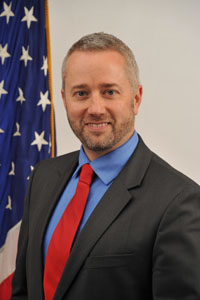 The Office of the National Coordinator for Health Information Technology (ONC) launched its data access framework initiative this week, an effort to increase interoperability among electronic health records (EHRs) from different vendors. Creating a data standard for all EHRs will empower patients who are switching from one provider to another, help smaller practices analyze and learn from their EHR data, and encourage innovation, according to Dr. Doug Fridsma, the Chief Science Officer and Director of the Office of Science and Technology at the ONC.
The Office of the National Coordinator for Health Information Technology (ONC) launched its data access framework initiative this week, an effort to increase interoperability among electronic health records (EHRs) from different vendors. Creating a data standard for all EHRs will empower patients who are switching from one provider to another, help smaller practices analyze and learn from their EHR data, and encourage innovation, according to Dr. Doug Fridsma, the Chief Science Officer and Director of the Office of Science and Technology at the ONC.
"The thought was that if we could open up the EHR and provide basic connectivity, what we've heard from the innovation community is that would really drive the innovation community to get engaged because they're not having to build 15 different interfaces into the EHR," Fridsma told MobiHealthNews. "They can build one [interface] and have a whole host of EHR systems they might be able to build value added services for, based on the data that's contained within them."
In addition, being able to easily extract information from EHRs will help accountable care organizations to measure the effectiveness of care when determining reimbursement. Data standardization would eliminate redundancies, where patients some times have to get tests done multiple times because the results aren't transferred from one system to another. Earlier this year, the West Health Institute projected that interoperability -- among both EHRs and medical devices -- could save the US healthcare system $30 billion a year.
The initiative includes members from Allscripts, Surescripts, the CDC, GE Healthcare, the Mayo Clinic, McKesson, Partners Healthcare, and others.
"This is our call to action across the industry to get people to engage in telling us what would be helpful standards or specifications or common ways of doing things that the industry can agree on both in terms of larger EHR vendors, smaller vendors and the innovation community," Fridsma said. "What would it be helpful for them have access to?"
Fridsma said the ONC will use multiple levers to get EHR vendors on board with whatever standards the initiative comes up with, including incorporating them into future certification requirements for meaningful use.
"There are incentives for the vendors, realizing if they have a product that's not certified it's going to be hard for them to sell that in the marketplace," Fridsma said. "That's one of the levers we have, but we work closely with the vendor community to make sure we're asking them to do things that in the end are going to be beneficial to patients and to the healthcare systems."
Fridsma said that Meaningful Use certification, and the government subsidies that come with meeting it, have already proved a successful tool in driving EHR adoption.
"In 2009, when the program was started we had about 17 percent adoption of EHRs in this country," he said. "This year we passed 50 percent, we expect that growth will continue for the next couple of years, probably getting us to 80, 85 percent in the next two years or so. It's hard to create an innovation and interoperability ecosystem if everyone's working on paper. So getting things from paper to electronic was really the first step in the process."
He said the new initiative is following the lead of ONC's Blue Button initiative, which standardized EHR data to make it more available to patients via mobile devices.
"Once we began to standardize Blue Button for patients, we really saw the innovation community be incredibly responsive and have all sorts of new valuable services that took off as a result of that," he said. "We've always sort of said, and I think [White House Chief Technology Officer] Todd Park can echo this as well, data is the fuel for innovation. If you don't have the data it's really hard to create applications that people can use in healthcare and in health IT."












